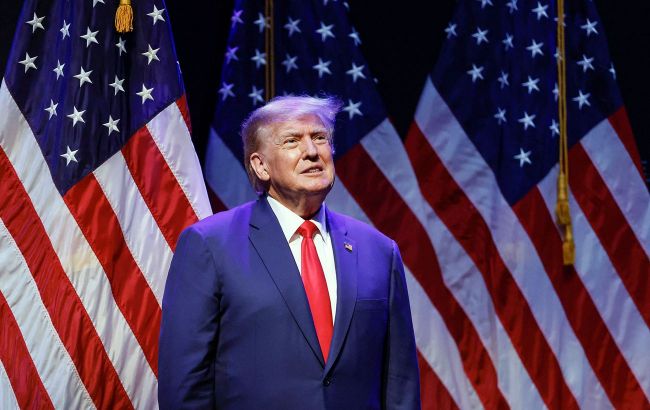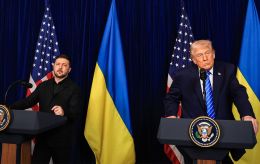Trump halted the case over election interference
 Former President of the United States Donald Trump (photo: Getty Images)
Former President of the United States Donald Trump (photo: Getty Images)
A federal judge has granted Donald Trump's request to suspend the scheduled March trial in the 2020 election interference case until the politician files a lawsuit seeking complete immunity from criminal charges, according to Bloomberg.
U.S. District Judge Tanya Chutkan in Washington on Wednesday, December 13, halted hearings and future deadlines in this case. The suspension will remain in effect during Trump's appeal of her prior decision to deny him immunity from legal prosecution for events during his presidency.
Chutkan stated that this order was merely a schedule delay and did not nullify all dates. Depending on how quickly the issue of immunity is resolved by higher courts, she will consider whether to reinstate some of the deadlines she previously set, including the trial scheduled for March 4, 2024.
The district judge also announced that she would continue to enforce her previously issued orders to protect the integrity of the case, including a partial ban on Trump's public statements about witnesses and prosecutors, conditions of his pretrial release, and the protection of evidence in the case.
Prosecutors stepped back
Prosecutors have agreed that the appeal regarding immunity will suspend a significant portion of the case, but they opposed a complete halt. According to them, in addition to implementing some already issued orders, Judge Chutkan may continue to make decisions on certain issues that have already been discussed by the parties during hearings. The judge did not address this issue in her decision on Wednesday.
The government stated that it would continue to adhere to the set deadlines to ensure that the judicial process proceeds as quickly as possible if Trump fails to persuade higher courts to rule in his favor on the immunity issue.
Chutkan's order comes at a time when the special counsel's office, led by Jack Smith, insists on expediting the consideration of the immunity case. Prosecutors have asked the District of Columbia Appeals Court to expedite Trump's appeal and simultaneously petitioned the U.S. Supreme Court to promptly address this matter, bypassing the District Court.
On Wednesday, Trump's defense team and Smith's office filed opposing legal briefs on what the District Court for the District of Columbia should do. Trump's lawyers protested against the government's proposed expedited schedule, arguing that it would harm the former president's right to a full discussion of the immunity issue and undermine public trust in the courts. They also complained that Smith is trying to ruin holiday plans, comparing him to the character Dr. Seuss's Grinch.
Prosecutors argued that the public is highly interested in a speedy resolution of the immunity issue and that lawyers and courts can decide important constitutional issues within short deadlines. As for Christmas, they wrote that quick and final answers to these important legal questions take precedence over personal planning issues.
By December 20, Trump must respond in the Supreme Court to the prosecutors' request for the court to promptly consider the immunity case.
Legal cases against Trump
Over 90 criminal charges have been filed against Donald Trump in several cases, including the payment of $130,000 to porn actress Stormy Daniels, attempts to overturn the results of the 2020 presidential election, the unauthorized handling of classified information after leaving the presidential office, and other allegations.
Recently, Special Prosecutor Jack Smith appealed to the U.S. Supreme Court to determine whether Trump has immunity from legal prosecution in the case related to subversive activities during the 2020 election, the hearing of which is currently scheduled for early March next year.
In early December, it was reported that Trump could be held civilly liable for the actions of participants in the storming of the Capitol on January 6, 2021.


